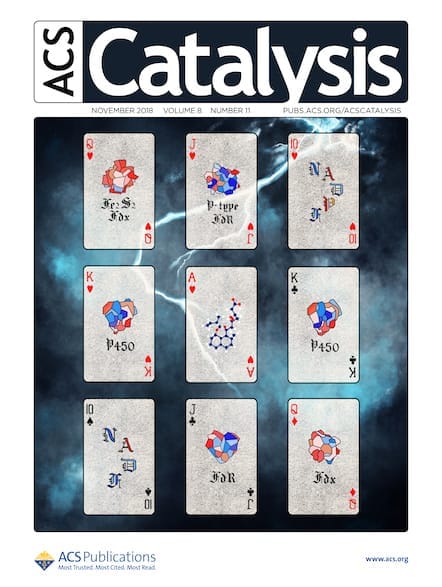ACS Publications appointed Cathleen Crudden, Ph.D., of Queen’s University in Kingston, Ontario, as the new Editor-in-Chief of ACS Catalysis. Crudden, who currently serves as an Associate Editor for the journal, is the A.V. Douglas distinguished professor of chemistry and Canada Research Chair (Tier 1). She additionally holds a research professorship and runs a satellite lab […]

ACS Publications appointed Cathleen Crudden, Ph.D., of Queen’s University in Kingston, Ontario, as the new Editor-in-Chief of ACS Catalysis. Crudden, who currently serves as an Associate Editor for the journal, is the A.V. Douglas distinguished professor of chemistry and Canada Research Chair (Tier 1). She additionally holds a research professorship and runs a satellite lab at the Institute of Transformative Bio-Molecules in Nagoya, Japan. Professor Crudden’s international experience is extensive, having held visiting professorships in Japan, Spain, and France. Professor Crudden’s work has included homogeneous and heterogeneous catalysis, with a recent focus on surface chemistry. She seeks to provide in-depth solutions to outstanding molecular and materials chemistry problems, including tackling issues such as the creation of carbon-carbon bonds with stereochemistry using catalytic approaches and using insight from catalyst design in materials chemistry.
I recently sat down with Professor Crudden about her new role as Editor-in-Chief of ACS Catalysis. Read the interview below.
What most excites you about becoming the newest Editor-in-Chief (EIC) for ACS Catalysis?
It goes without saying that I am delighted to be the new EIC at ACS Catalysis. Chris Jones and the phenomenal team of Associate Editors at ACS Catalysis have made this journal the premier place to publish the very best of catalysis research around the globe. This is a great time for catalysis, with new types of catalysts, new visions of catalysis and its ability to positively impact the world, and new insights into catalytic processes appearing every day. I very much look forward to being a part of the future of this powerful field through my role as EIC at ACS Catalysis.
What does it mean to you to become the first woman EIC for ACS Catalysis?
There is no doubt that it is essential for students and younger researchers to see that women and under-represented groups can and do hold positions of leadership. If, in my tenure as EIC for ACS Catalysis, I am able to act as a positive role model for younger women and underrepresented groups, I would be delighted by that.
What do you see as the biggest challenges and opportunities in the field today?
The biggest challenge in the field is absolutely ensuring fairness, equity, and inclusivity in science. For most of its history, science has not been representative of the community from which scientists are drawn. This represents a deep lack of fairness, and it is a detriment to science, since ideas and innovations are coming from only a fraction of the population. The world is becoming more aware of these issues, but we have an extremely long road ahead of us.
The biggest opportunity, in my opinion, is interdisciplinary research. Researchers from historically disparate fields working together are making significant impacts on catalysis and other science and engineering areas. In my role as EIC for ACS Catalysis, I will strive to encourage interdisciplinarity.
What’s one piece of advice you’d give to early career researchers who are just starting out in the field?
Be bold. This translates to many areas, including the work you set out to do. Of course, every new researcher needs projects that are likely to bear fruit, but at the same time, projects that are bold and challenge existing concepts will have a larger impact. I hope that research and funding organizations will support researchers in a way that permits them to challenge big problems.
In addition, I would highly recommend being bold in terms of moving outside your comfort zone. This includes doing research that is unique to you and getting to know people outside your area. The most helpful thing for me in my career has been making connections with interesting people outside my area. Most importantly, this is a fun thing to do, but I am always amazed at how helpful it has been to have personal contacts with people in different fields who start as friends but end up as collaborators!
ACS Catalysis recently celebrated its 10-year anniversary. Where do you hope to see the journal in another ten years?
I hope that in the next ten years, ACS Catalysis continues to be a place that publishes cutting edge, impactful research in all areas related to catalysis. I hope we serve as a focal point for the catalysis community and that we have been able to engage a diverse group of catalysis researchers from around the globe.
